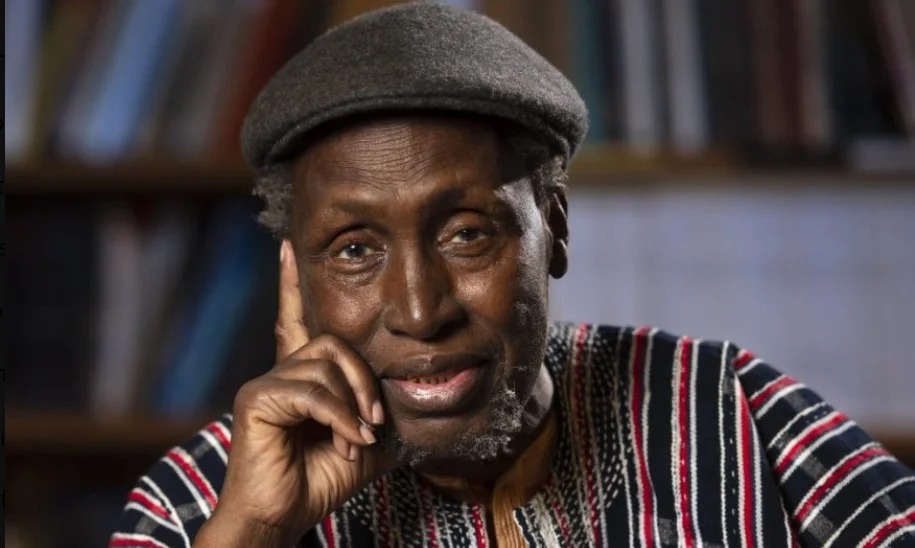Ngũgĩ wa Thiong’o, a legendary Kenyan writer, scholar, and revolutionary voice in African literature passed away on May 28, 2025, at the age of 87 in Buford, Georgia, United States.
A Literary Giant Passes
Ngũgĩ wa Thiong’o was known for his fierce advocacy of indigenous voices, he reshaped storytelling by prioritizing cultural authenticity.
From novels like A Grain of Wheat to his groundbreaking essays, Ngũgĩ inspired generations to decolonize their minds and embrace their heritage.
His passing in 2025 marks not an end but a new chapter, as his stories continue to inspire writers worldwide.
Voicing Kenya’s Struggles
Ngũgĩ was born in Limuru, Kenya, and began writing as James Ngugi, gaining prominence with novels like Weep Not, Child (1964) and A Grain of Wheat (1967).
These works vividly portrayed Kenya’s colonial struggles and the Mau Mau uprising, blending personal tales with political depth.
His early English-language novels brought African experiences to a global audience, establishing him as a literary force and setting the stage for his later push for linguistic decolonization.
Writing in Our Own Voice
In the 1970s, Ngũgĩ made a bold choice to write in his native Gikuyu, rejecting English as a tool of colonial domination.
His essay collection Decolonising the Mind (1986) became a manifesto for cultural emancipation, urging African writers to use indigenous languages.
This shift inspired a movement, empowering authors to reclaim their linguistic heritage. Works like Caitani Mutharabaini (Devil on the Cross) exemplified his commitment to authentic African storytelling.
This inspired African writers to embrace languages like Swahili and Yoruba, sparking a literary renaissance.
Ngũgĩ’s linguistic revolution redefined African storytelling as an act of resistance.
Defying Oppression
Ngũgĩ’s fearless critiques of Kenya’s post-colonial government led to his 1977 imprisonment under President Daniel arap Moi.
Undaunted, he penned “Devil on the Cross” on prison toilet paper, a scathing satire of neo-colonial greed and exploitation.
Forced into exile in 1982, he continued his work in the U.S., teaching at Yale and NYU amplifying his global influence.
His resilience transformed adversity into art, cementing his role as a voice for the oppressed and marginalized.
Global Literary Force
Ngũgĩ’s later works, like “Wizard of the Crow” (2006), showcased his wit and versatility, satirizing dictatorship with universal appeal.
His plays, such as “Ngaahika Ndeenda,” empowered communities through vernacular theater blending art and activism.
As a professor and founder of the Gikuyu journal Mũtĩiri, he mentored countless writers, influencing figures like Chimamanda Ngozi Adichie. His global impact redefined African literature’s place in the world.
His work continues to inspire authentic storytelling worldwide.
Passing the Pen
Ngũgĩ’s passing marks a profound loss and leaves a void, but his legacy thrives in writers and activists he inspired.
As a Nobel Prize contender, he prioritized marginalized voices over accolades.
His mantra which was to “write in our own voice” continues to inspire writers dismantling colonial legacies.
As he said, “The storyteller never dies; the story lives on.” Ngũgĩ’s vision lives in the next generation, shaping a vibrant future for African storytelling.
Which of his works, “A Grain of Wheat” or “Decolonising the Mind,” have you explored?























